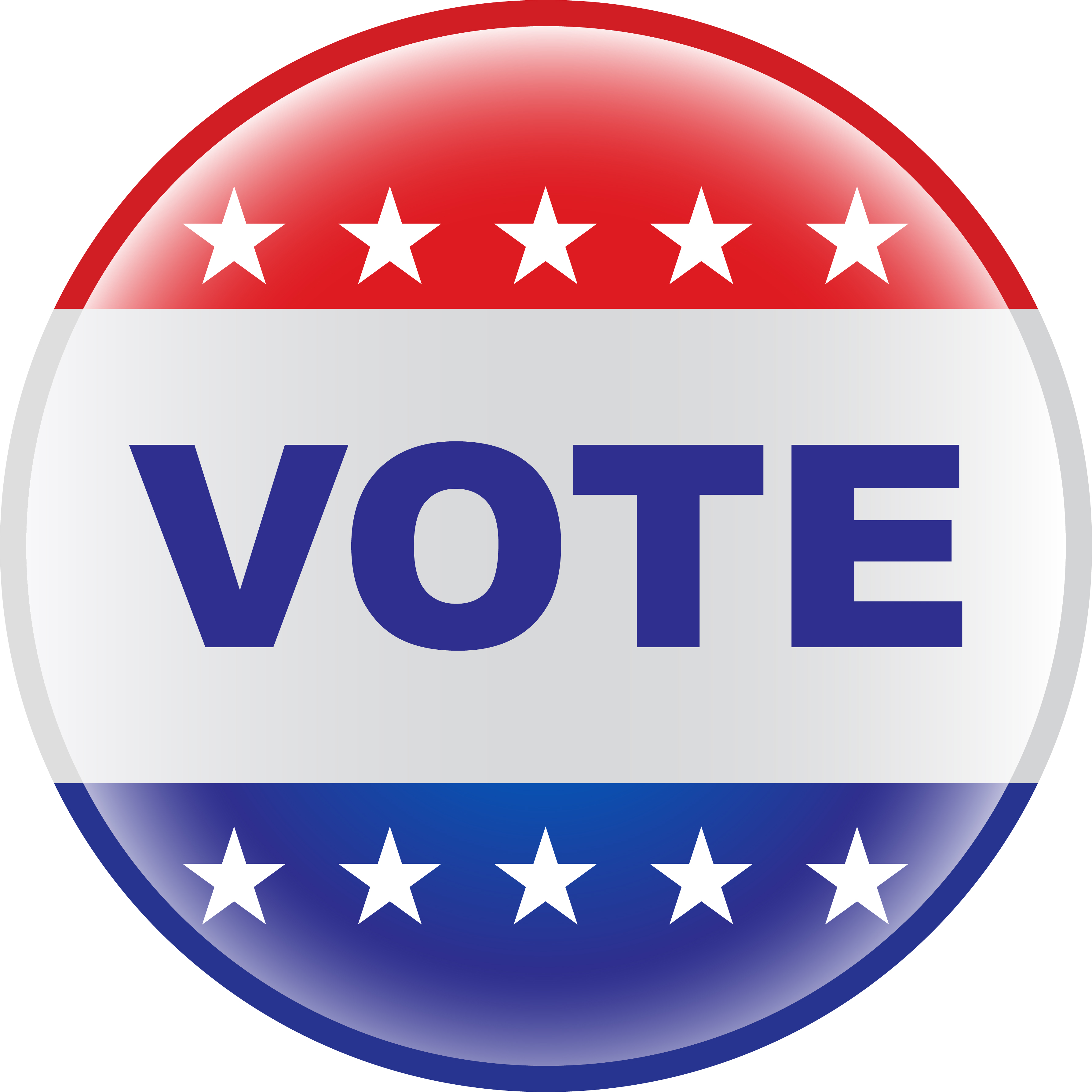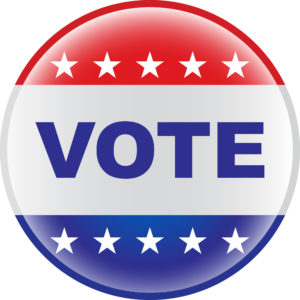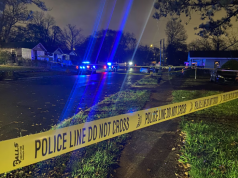
For The Birmingham Times

What supporters of Amendment 14 say
On Tues. Nov. 8, Alabamians will vote on 14 statewide constitutional amendments. Many Birmingham leaders and elected officials are lending their support to one in particular – Amendment 14.
“Amendment 14 will move Birmingham and Jefferson County forward,” said Rep. Oliver Robinson, D-Birmingham. “This amendment will not create any new taxes – it validates hundreds of local laws that provide support to local school systems and mass transit.”
Amendment 14 closes a procedural gap in the voting process in the Alabama State House of Representatives. Since 1984, local delegations have voted on local acts through the Budget Isolation Resolution (BIR) process. Nearly 700 local laws have passed through this voting process. Now, due to a lawsuit in Jefferson County, the process is in question, which could invalidate hundreds of local laws.
“We need to step up and not let a small procedural gap keep Jefferson County from receiving $18 million in additional revenue for public schools,” said Sandra Little Brown, Jefferson County Commissioner – District 2. “Based on enrollment, Birmingham City Schools will see an additional $4.2 million, Fairfield will see an additional $320,000 and Midfield will receive an additional $200,000 every year.”
If Amendment 14 passes, nearly 700 local laws passed through the BIR voting procedure will be validated, supporters say. The laws provide funding for schools, public safety, economic development programs, courts and roads and infrastructure. If Amendment 14 fails, laws passed through the BIR will be vulnerable to hundreds of lawsuits, resulting in millions of taxpayer dollars being spent on legal fees.
“Leaders across the state have come together to support Amendment 14,” said Sen. Rodger Smitherman, D-Birmingham. “We understand the benefits of this amendment, and we also understand the potential consequences of a ‘No’ vote. With that in mind, I want to encourage voters to support this amendment on November 8.”
The University of Alabama at Birmingham National Alumni Society released a position statement saying Amendment 14 is good for UAB, Birmingham, Jefferson County and Alabama. “It protects laws passed since 1984 that provide funding for schools, hospitals, first-responders and key community construction projects.
“Specifically, Amendment 14 safeguards nearly $18 million in current funding for public schools in systems including Birmingham, Homewood, Hoover, Jefferson County, Mountain Brook, Vestavia Hills and others.
“For UAB, passage of Amendment 14 protects the proposed stadium at the BJCC that will be home to UAB Football and other events. This venue will accelerate UAB Football’s ascension and – like Regions Field – is important to continued downtown revitalization and momentum.”
Supporters have provided their answers to frequently asked questions about Amendment 14 and the impact on local bills and other areas.
Is there a problem with these local bills? Are they unconstitutional?
No. The court ruling only calls into question the constitutionality of how these local laws were passed, the procedural process by which they were voted and the number of votes needed for passage according to one interpretation of the BIR. Neither the merits nor the content of the local laws are being called into question. All of these laws have been in place for many years and were supported and passed with strong local support. Many also were passed in a vote of the people in local referendums.
What do these local laws do?
The nearly 700 “at-risk” ACTS provide local funding for school systems, county sheriff’s offices, volunteer fire departments and districts, emergency services, the courts and the District Attorney’s office. Several of these ACTS approved local bond issuances for economic development projects that support job creation and workforce training. In addition, these acts support local hospitals, protect local pension and retirement programs, support local historical or tourism attractions, authorize Sunday alcohol sales and much, much more. These local laws were passed to address real needs in local communities over a 30-year period.
What if Amendment 14 is not approved?
If Amendment 14 does not pass, each of these 700 local bills could be invalidated due to a recent judge’s order. Local communities, county commissions, municipalities or, more simply put, taxpayers will have to pay unnecessary legal fees to fight frivolous lawsuits and pay additional money to re-advertise all of the local laws. We also will have to wait for the legislature to re-pass the ACTS being challenged.
What opponents of Amendment 14 say
Members of the Birmingham City Council last week unanimously passed a resolution opposing Constitutional Amendment 14.
They say the amendment would legitimize a number of bills that don’t comply with Alabama Law and would limit judicial review and significantly reduce the amount of funding that each school district should receive under the existing enabling ordinance.
City Council President Johnathan F. Austin said “A vote for Amendment 14 will take money from our children and convert it to slush funds for our legislators. It further takes over $42 million out of Birmingham and gives those funds to the entire county.”
District 6 City Councilor Sheila Tyson echoed her colleague’s thoughts, noting that it’s important that voters understand all of the facts before heading to the polls Tuesday.
“Our schools have seen an alarming decrease in population in recent years, so it’s smart to assume that we might not get the $4 million dollars we get every year if this bill passes,” Tyson said. “Only a heartless person would do anything to take away from providing our children with the best learning opportunities. I am asking that everyone come out to this press conference to gain valuable insight on the impact of Amendment 14.”
Others say Amendment 14 is an end-run around a circuit court judge’s ruling that the Alabama Legislature illegally passed a bill without a quorum of lawmakers present.
Bob Friedman, a member of the Committee to Save Jefferson County, filed a lawsuit in Montgomery County Circuit Court last month asking that Amendment 14 be removed from ballots across the state.
The amendment, which is on the Nov. 8 ballot seeks to validate hundreds of laws – including the Jefferson County sales tax bill – that have been adopted over the past three decades under a certain legislative rule that last year was challenged in court.
Judge Mike Graffeo’s ruling halted a sales tax bill that would have refinanced more than a half-billion dollars in school construction debt and redirected cash to the county’s general fund and areas such as schools, the Birmingham-Jefferson County Transit Authority, the Birmingham Zoo, and $3.6 million a year towards local legislators’ pet projects in their districts.
Friedman and opponents of Amendment 14 have argued that the amendment “asks voters to participate in a conspiracy countermanding a Jefferson Circuit Court judge’s decision who ruled that the legislature illegally passed [the sales tax] bill without a quorum present.”
“That bill was an unconstitutional effort to take Jefferson County’s school tax money and use it for non school purposes,” Friedman argued.
The need to validate the laws came after Graffeo in December 2015 declared the state law approving Jefferson County’s refinance plan void because the Alabama Legislature did not properly enact it under a Budget Isolation Resolution (BIR).
Under the Alabama Constitution when voting on a bill prior to an annual state budget being adopted legislators must first pass a Budget Isolation Resolution by three-fifths of a quorum – or 32 votes in the House of Representatives – in order to allow the vote on the bill to take place, according to AL.com.
But a House rule requires only three-fifths of those voting, a lesser standard. The Jefferson County sales tax bill passed the House after a 13-3 vote on the BIR.
“These votes were, as a matter of law, insufficient to meet the requirement for an affirmative vote of ‘three fifths of a quorum present’ for the House to validly adopt a BIR,” Graffeo stated in his order.
State Rep. John Rogers, D-Birmingham, said that “Amendment 14 is designed to overturn Graffeo’s quorum decision.”
“After Graffeo ruled their bill was passed illegally, the Jefferson County legislators appealed to the Alabama Supreme Court but knew they had a weak case,” Rogers said. “After all, Graffeo finally called them on what they had been doing for years . . . disregarding their own rules, and passing bills without quorums present.”
Rogers said the issue also exposed several other problems.
“You cannot convert the county school tax, a general bill, to a local bill without a vote of the people,” he said. “So the legislators and Jefferson County commissioners created Amendment 14, employing a fear tactic on TV, that 600 bills would unravel and that would create chaos.”
Only two bills are in question because of the statute of limitations, not hundreds as some are saying, according to Rogers.
“One is the Chilton County hospital issue – now in the courts – and the other is the grand theft attempted by Jefferson County politicians to rip off the citizen’s school funds.”
The bill creating Amendment 14, approved during the summer’s special session on the lottery, was sponsored by State Sen. Cam Ward, whose district covers Bibb, Chilton, Jefferson, and Shelby counties, according to AL.com.
Legislators and others have said that if Amendment 14 isn’t approved by voters, it could open up legal challenges to more than 600 laws statewide that have been adopted without a 32-vote BIR in the House since the 1980s.
Friedman said he believes Amendment is “nothing but an end-run” about Graffeo’s ruling to get Jefferson County’s plan approved. He said the incentive for the Amendment is to create a fund to give $100,000 annually for each Jefferson County Representative and over $200,000 for each Jeffco state senator – “a slush fund for pet projects,” he said.
Up to $3.6 million a year would go to a new Jefferson County Community Services Fund to be allocated among the county’s legislators for spending in their districts, with approval of a new four-member committee appointed by legislators.
However, State Rep. Oliver Robinson, D-Birmingham, who supports the amendment, said the plan most importantly would provide money for the county to spend on economic development, education and transit.



